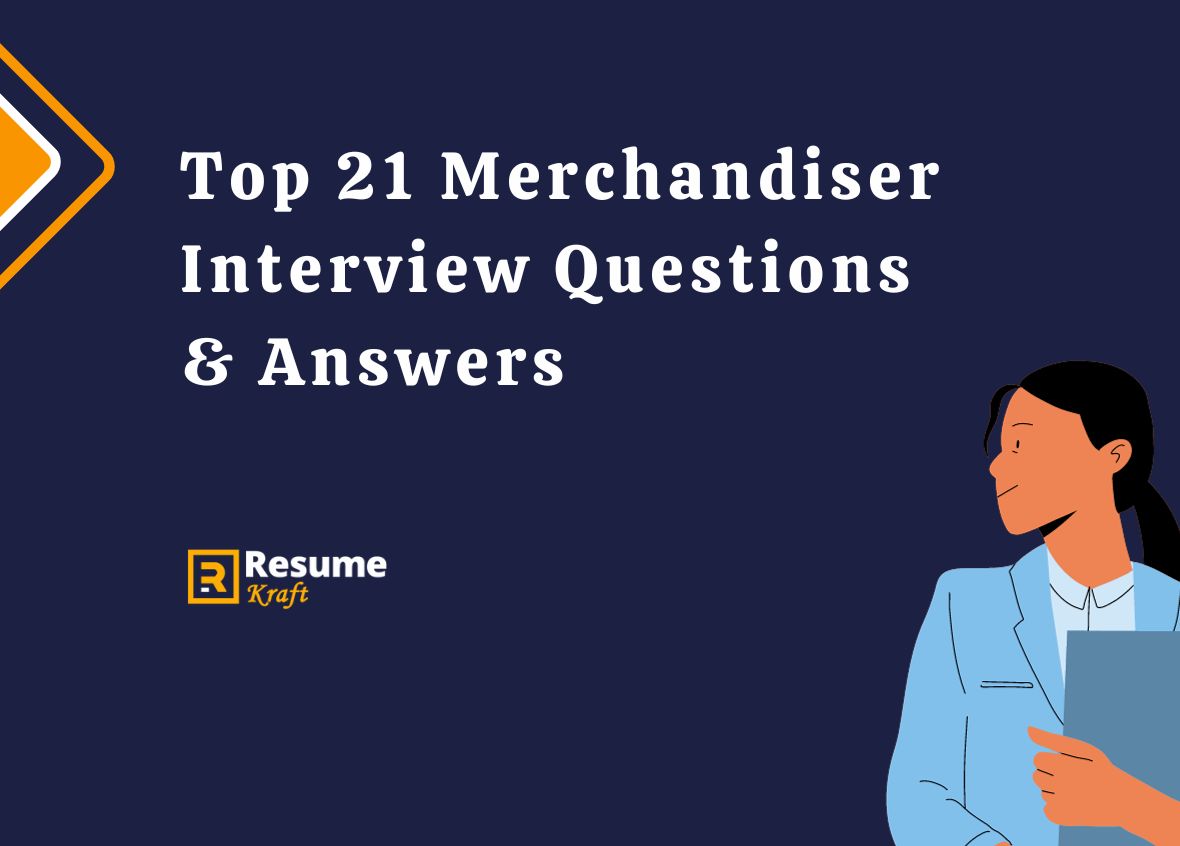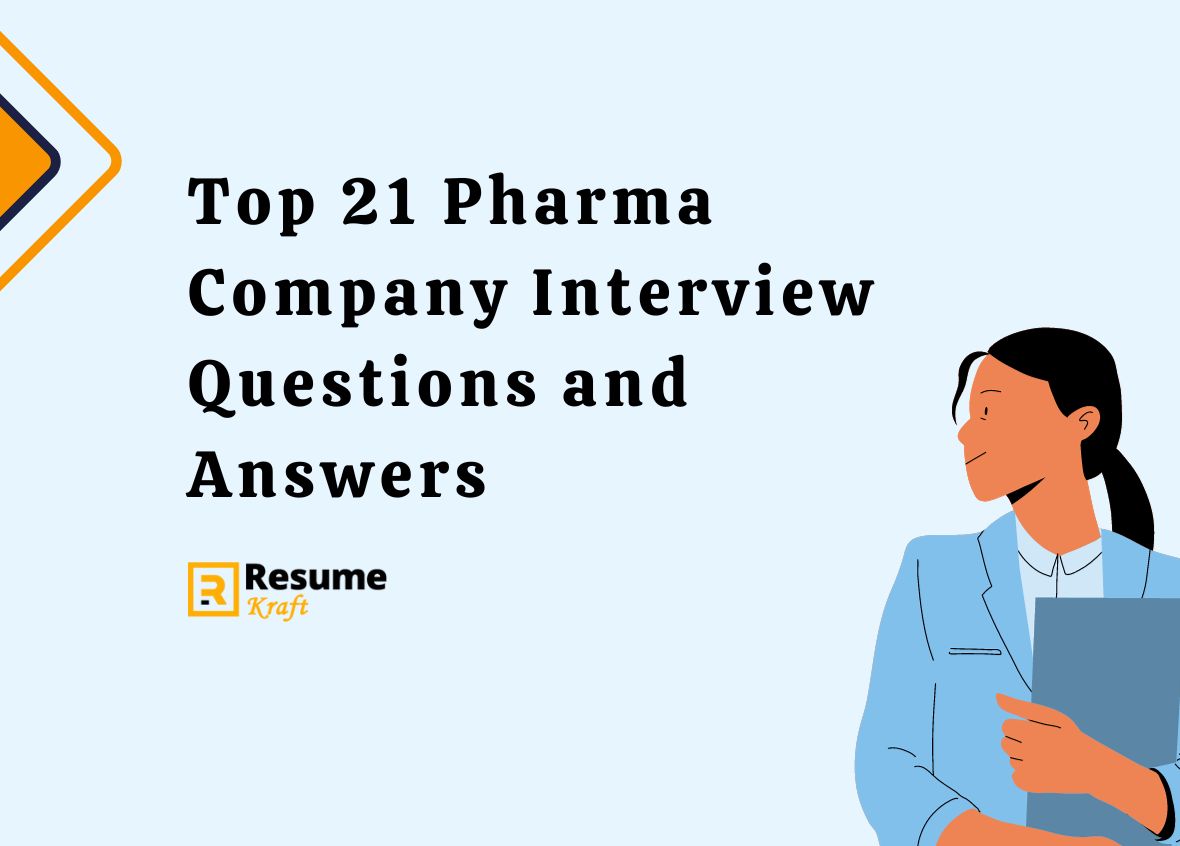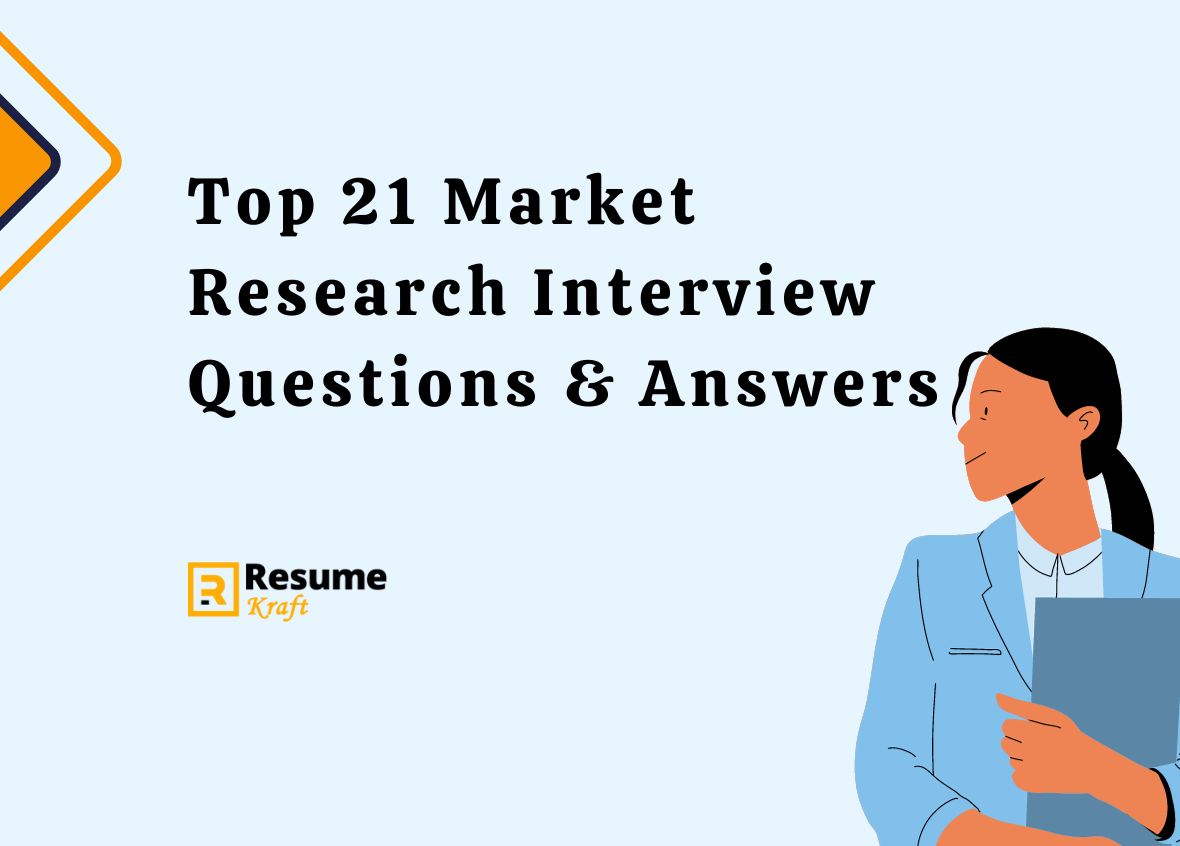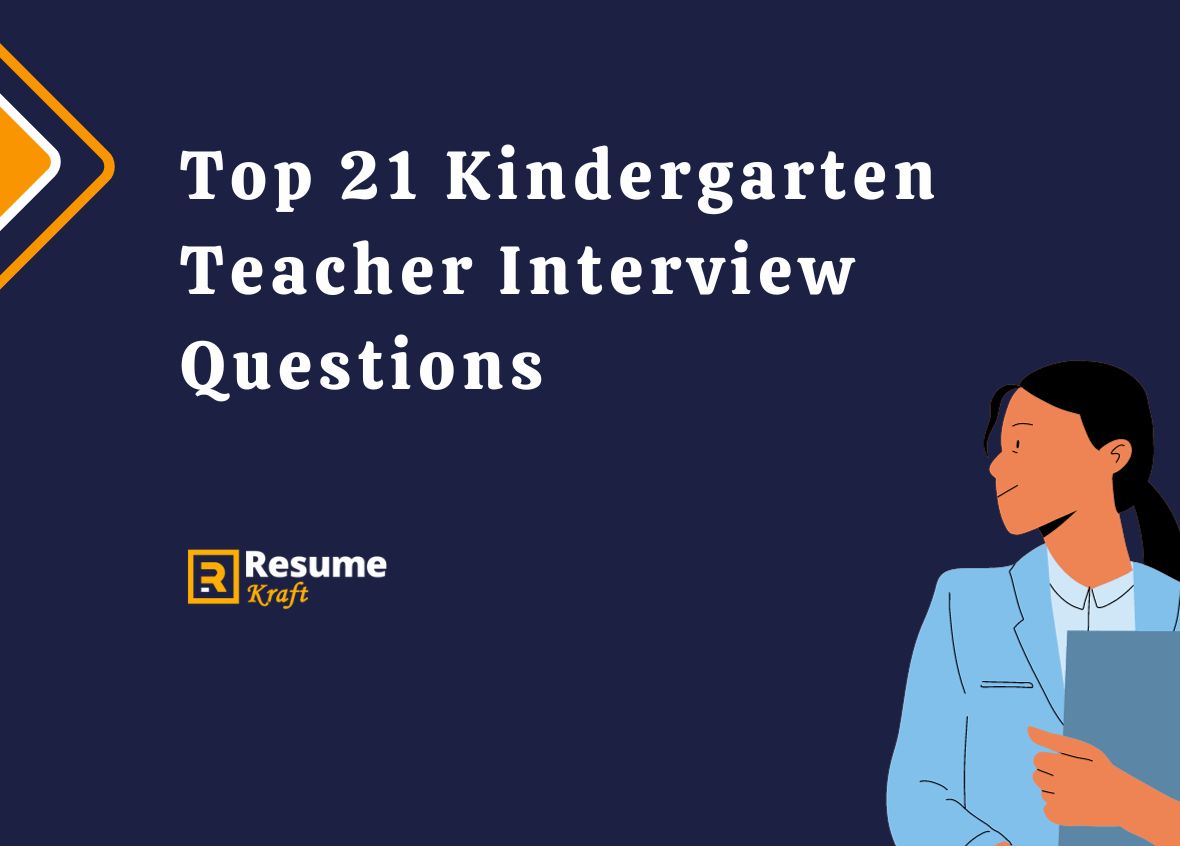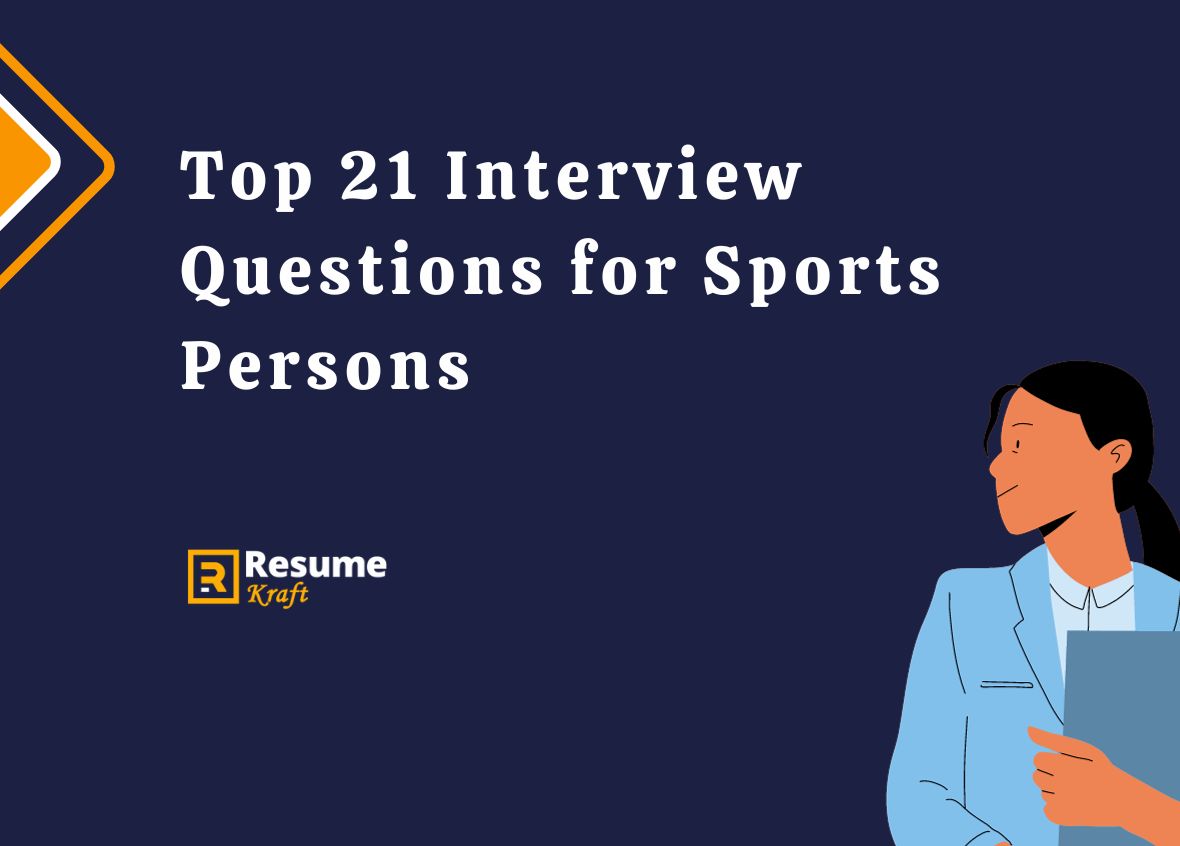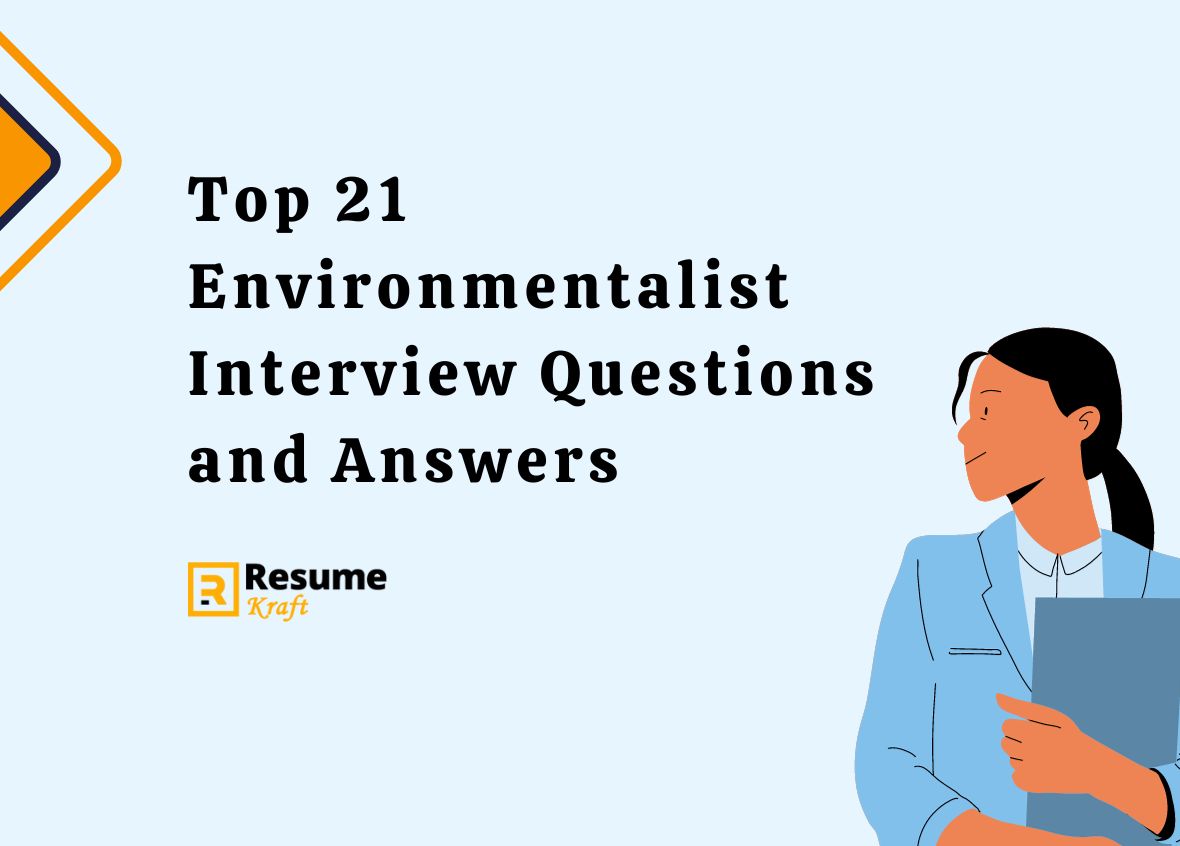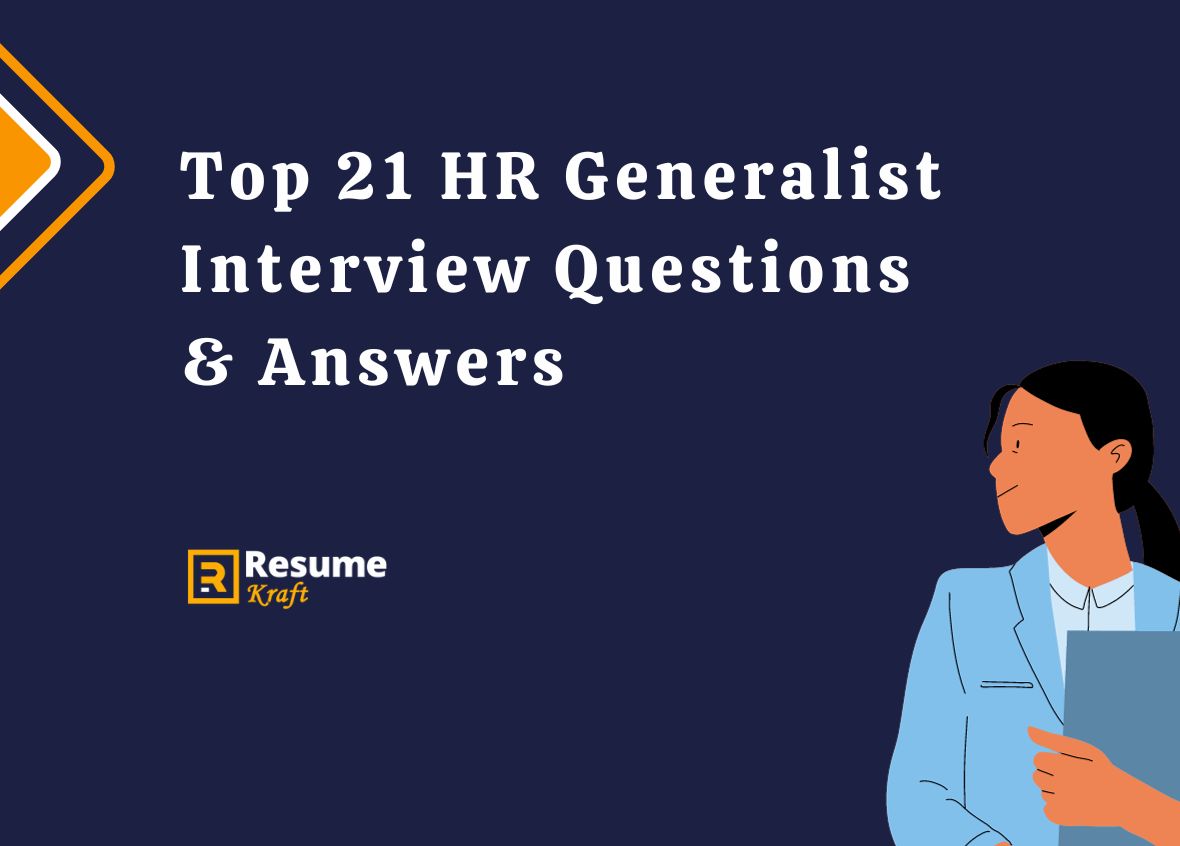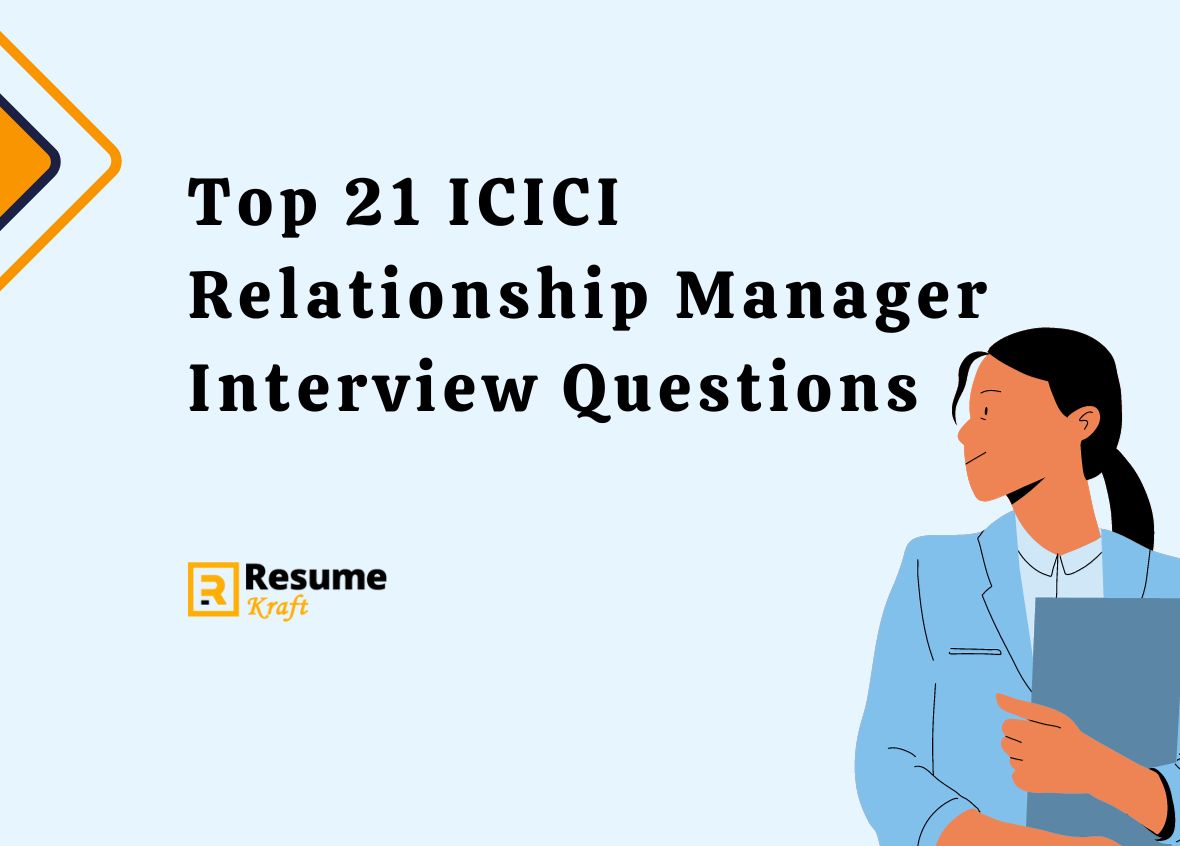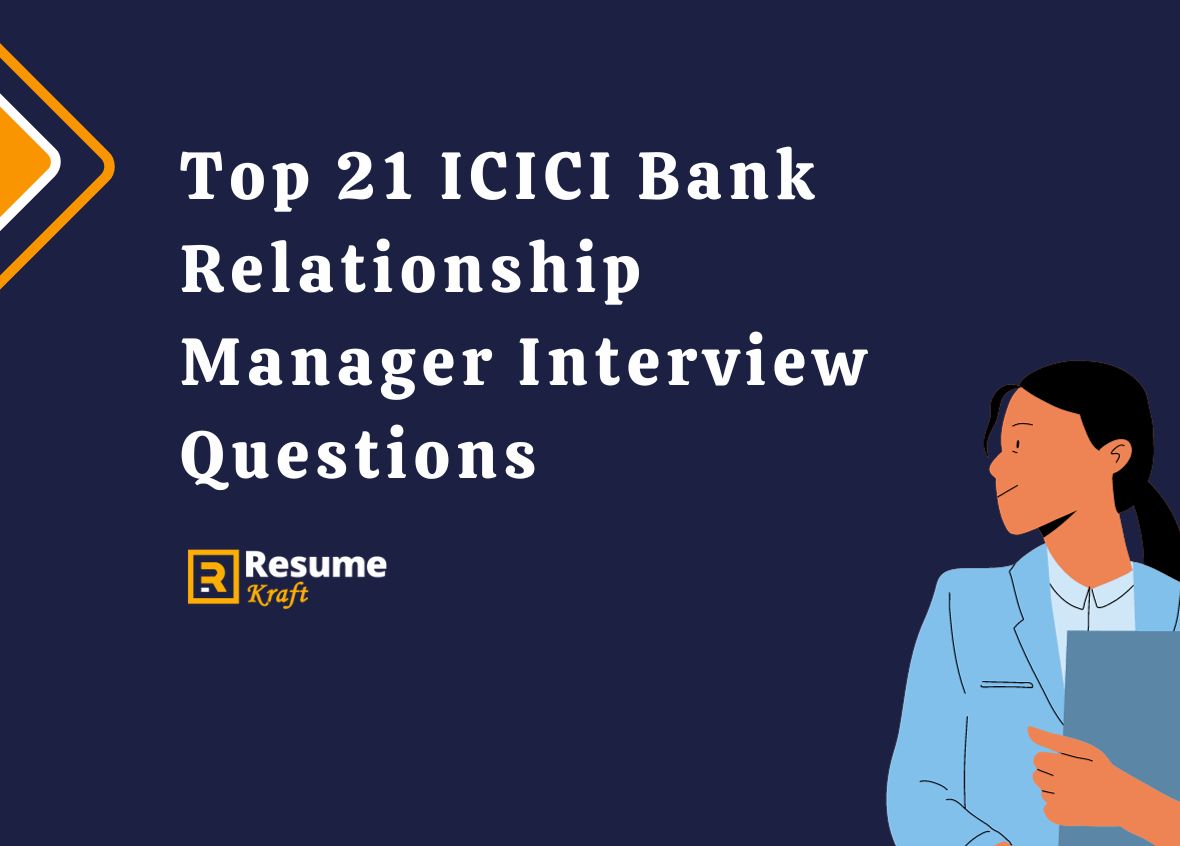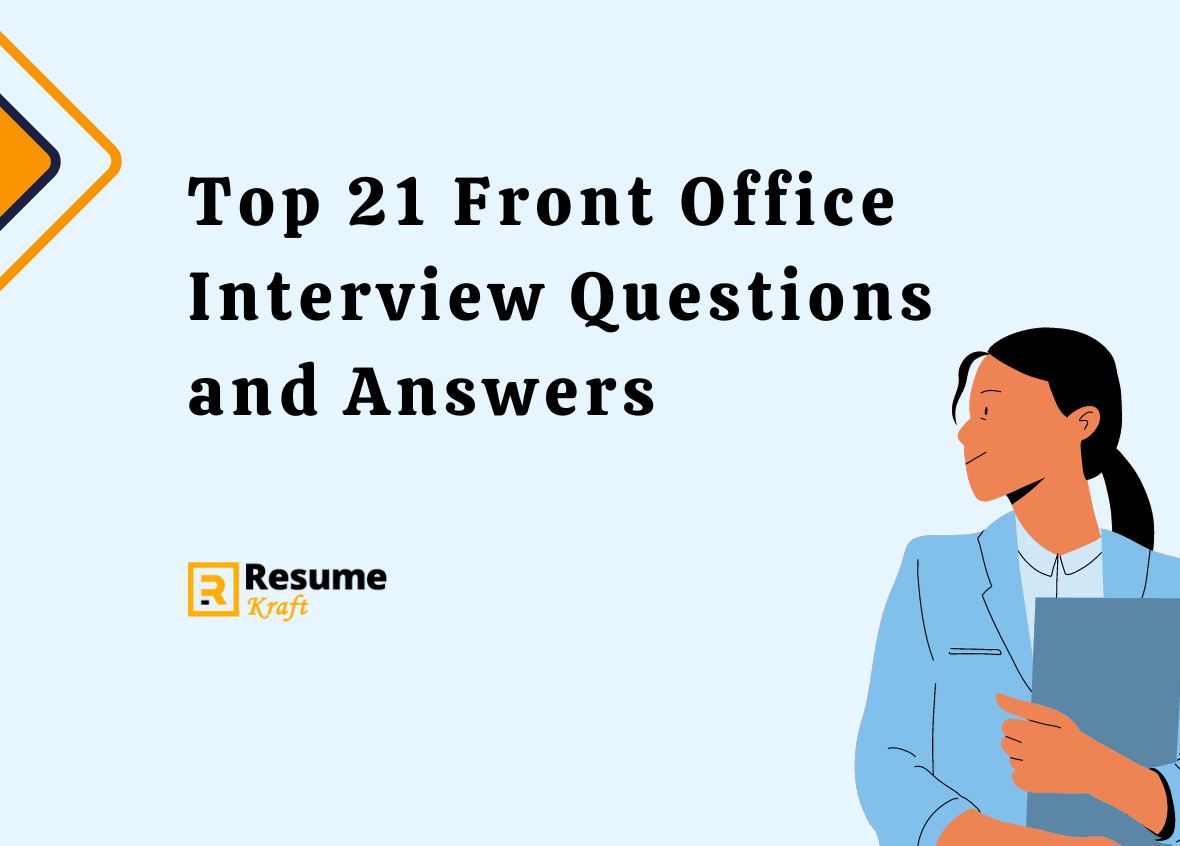
Top 21 Microbiology Interview Questions & Answers
Embarking on a career in the challenging yet thrilling field of microbiology? Well, one crucial step stands between you and your dream job: the interview. In this scientific realm where microorganisms reign supreme, you are expected to be well-versed with not only fundamental microbiology concepts but also current developments and trends.
To aid you in landing your desired role, we have prepared a rich guide setting the stage for your interview preparations. From general inquiries to technical ones, this guide covers potential questions that you might face, helping you to steer your responses in the right direction and to leave a lasting impression on your potential employers.
- Top 21 Microbiology Interview Questions and Answers
- 1. Can you explain the importance of microbiology in today’s world?
- 2. What inspired you to pursue a career in microbiology?
- 3. Could you explain the difference between a virus and a bacterium?
- 4. Can you detail the various techniques employed in microbial cultivation?
- 5. What are some safety measures you adhere to while working in a microbiology lab?
- 6. Can you explain the Gram staining process and its significance?
- 7. Could you discuss the role of microbi
- 8. What is microbial genetics and how does it aid in research?
- 9. How do microorganisms participate in biogeochemical cycles?
- 10. How would you prevent microbial contamination in culture?
- 11. How does microbial fermentation work in industrial settings?
- 12. How is microbial resistance to antibiotics a concern, and how can it be mitigated?
- 13. What are probiotics, and how are they beneficial?
- 14. How do microbes play a role in environmental conservation?
- 15. Can you explain the concept of microbial symbiosis?
- 16. What are the methods used in microbial identification?
- 17. How is microbiology instrumental in agriculture?
- 18. Can you discuss the significance of food microbiology?
- 19. How do microbes contribute to the biotechnology industry?
- 20. What is the principle of microbial ecology?
- 21. How does microbiology assist in forensic science?
- Conclusion
Top 21 Microbiology Interview Questions and Answers
Before we dive into the deep pool of microbiology interview questions, remember to back your answers with relevant experiences and examples. It gives a personal touch and showcases your understanding and proficiency in real-world scenarios.
1. Can you explain the importance of microbiology in today’s world?
Understanding the significance of microbiology in today’s context could reflect your perspective towards the field.
Sample Answer
“Microbiology stands at the forefront of addressing some of the world’s most pressing issues, including infectious diseases, antibiotic resistance, and environmental conservation. It aids in the development of vaccines, understanding the role of microbes in climate change, and leveraging them for bioremediation. It is a critical field that dovetails with various industries, ranging from pharmaceuticals to agriculture, offering comprehensive solutions to many challenges.”
Build your resume in just 5 minutes with AI.

2. What inspired you to pursue a career in microbiology?
This question seeks to understand your motivation and passion for the field of microbiology.
Sample Answer
“My fascination with microbiology began in high school during biology classes where I was amazed to learn how microorganisms, invisible to the naked eye, could have such a significant impact on our world. Further, the rapid advancements in the field and its interdisciplinary nature, which offers the chance to work in various domains including healthcare, environmental conservation, and industrial applications, have fueled my desire to pursue a career in this vibrant field.”
3. Could you explain the difference between a virus and a bacterium?
Testing your basic knowledge on microorganisms, this question is quite common in microbiology interviews.
Sample Answer
“Certainly. Bacteria are single-celled microorganisms that are generally independent and can live in diverse environments. They have a well-defined cell wall and a cellular structure that encompasses all necessary components for survival. On the other hand, viruses are much smaller and are not considered living organisms outside a host because they cannot carry out metabolic processes or reproduce on their own. They need to infect a host cell to replicate and propagate. Their structure is simpler, often consisting of a protein coat surrounding genetic material, either DNA or RNA.”
4. Can you detail the various techniques employed in microbial cultivation?
This question tests your knowledge on the fundamental techniques used in microbiology laboratories.
Sample Answer
“Absolutely. Microbial cultivation involves a variety of techniques. Streak plating is used to isolate a pure strain from a single species of microorganism. Pour plate and spread plate methods are also used for isolation and enumeration of microorganisms. Batch and continuous cultures are employed for growing microbes in a controlled environment. It’s imperative to choose an appropriate growth medium and ensure sterile conditions to prevent contamination. Moreover, methods like serial dilution are utilized to obtain a manageable number of colonies. These techniques are pivotal in studies involving microbial physiology and genetics.”
5. What are some safety measures you adhere to while working in a microbiology lab?
Ensuring safety in the laboratory is vital. Your answer should reflect your commitment to maintaining a safe work environment.
Sample Answer
“Safety is a paramount concern in a microbiology lab. Adhering to biosafety guidelines, I always ensure to wear appropriate personal protective equipment, including lab coats, gloves, and eye protection. It is crucial to follow the correct procedures for handling microbial cultures to avoid cross-contamination. Additionally, maintaining the cleanliness of work areas, properly disposing of biohazardous material, and ensuring the correct storage of chemicals and reagents are vital steps. In case of working with pathogenic strains, working in a certified biosafety cabinet is essential to contain the microbes and protect the individual.”
6. Can you explain the Gram staining process and its significance?
Understanding of a fundamental microbiology technique, Gram staining, is a routine question in such interviews.
Sample Answer
“Absolutely. The Gram staining technique is a pivotal method in microbiology to differentiate bacterial species into two groups: Gram-positive and Gram-negative. The procedure involves several steps starting with the application of a primary stain, crystal violet, followed by the application of a mordant, iodine, which fixes the stain. Next, a decolorizer such as ethanol or acetone is used, which retains the stain in Gram-positive bacteria while removing it in Gram-negative bacteria. The final step is counterstaining with safranin, staining Gram-negative bacteria pink. This staining method is crucial as it aids in the preliminary identification of bacteria and helps in deciding the treatment course in clinical setups.”
7. Could you discuss the role of microbi
ology in the pharmaceutical industry?
Being aware of the application of microbiology in different industries is a plus point in an interview.
Sample Answer
“Microbiology plays a substantial role in the pharmaceutical industry, being central to the development of antibiotics, vaccines, and other biopharmaceutical products. It aids in ensuring the safety and efficacy of pharmaceutical products through various tests for microbial contamination, including sterility testing. Furthermore, microbiologists work on optimizing fermentation processes for the production of drugs and also involve in the research and development of new medicinal products, leveraging the capabilities of different microbes. The microbial analysis of water and other raw materials used in pharmaceutical production is also a crucial task handled by microbiologists to maintain the quality standards.”
8. What is microbial genetics and how does it aid in research?
This question aims to explore your understanding of microbial genetics and its utility in research.
Sample Answer
“Microbial genetics is a subject area that covers the genetics of microorganisms, including bacteria, viruses, fungi, and protozoa. It involves the study of their genetic makeup, how they inherit traits, and how they express them. The field is pivotal in research, as it aids in understanding fundamental biological processes like DNA replication, mutation, gene expression, and recombination. Microbial genetics has opened avenues in biotechnological applications including gene editing and also plays a significant role in the development of new drugs, vaccines, and improved microbial strains for industrial production.”
9. How do microorganisms participate in biogeochemical cycles?
Your comprehension of ecological concepts concerning microbiology is being tested here.
Sample Answer
“Microorganisms play a critical role in biogeochemical cycles as they facilitate the breakdown and recycling of organic materials, helping in maintaining the balance of essential elements like carbon, nitrogen, and sulfur in the environment. For instance, bacteria facilitate nitrogen fixation, transforming atmospheric nitrogen into a form that plants can utilize. Similarly, microbes play a key role in the carbon cycle, contributing to both carbon fixation through photosynthesis and carbon release through decomposition. Essentially, microorganisms act as catalysts driving the essential processes that maintain the natural equilibrium of life-sustaining elements on Earth.”
10. How would you prevent microbial contamination in culture?
Maintaining a contamination-free culture is essential in microbiology, and this question assesses your knowledge in ensuring it.
Sample Answer
“Preventing microbial contamination in culture involves stringent sterile techniques including the use of sterilized equipment and media. Work should always be conducted in a clean, contamination-free environment, ideally in a biosafety cabinet. Proper hand hygiene, using gloves, and avoiding open containers can prevent the introduction of unwanted microbes. Furthermore, all reagents and solutions should be properly stored to avoid contamination, and periodic checks should be instituted to ensure the sterility of stored materials. A well-maintained inventory, coupled with proper waste disposal, also aids in preventing contamination.”
11. How does microbial fermentation work in industrial settings?
Here, your understanding of applied microbiology in industrial scenarios is being examined.
Sample Answer
“In industrial settings, microbial fermentation is utilized to produce a variety of products including alcoholic beverages, biofuels, and pharmaceuticals. The process involves the cultivation of selected microbial strains in large fermenters, where they metabolize specific substrates to produce the desired products. It is a carefully controlled process, where parameters such as temperature, pH, and nutrient supply are optimized to achieve high yields. Besides production, fermentation also finds applications in waste treatment, where microbes help in breaking down complex organic compounds, aiding in pollution control.”
12. How is microbial resistance to antibiotics a concern, and how can it be mitigated?
This question navigates the pressing issue of antibiotic resistance, a hot topic in microbiology.
Sample Answer
“Microbial resistance to antibiotics is indeed a major global health concern as it renders many existing antibiotics ineffective, leading to treatment failures. This resistance can emerge through several mechanisms, including mutations and horizontal gene transfer. To mitigate this, it is essential to use antibiotics judiciously, promoting rational use and avoiding unnecessary prescriptions. Research and development of new antibiotics, along with alternative strategies like phage therapy, are crucial. Moreover, encouraging proper infection control measures and promoting vaccinations can reduce the reliance on antibiotics, thereby slowing down the emergence of resistant strains.”
13. What are probiotics, and how are they beneficial?
Probiotics are a buzzword in the health industry, and understanding them is essential in modern microbiology.
Sample Answer
“Probiotics are live microorganisms, typically bacteria or yeasts, that confer health benefits when consumed in appropriate amounts. They aid in maintaining a healthy gut microbiota, enhancing the digestive process, and strengthening the immune system. Probiotics can help in preventing gastrointestinal disorders like diarrhea and irritable bowel syndrome. They are found in fermented foods like yogurt, kefir, and sauerkraut and are also available as dietary supplements. Besides, they can promote mental health and reduce the severity of allergies and eczema, thus having a holistic impact on an individual’s well-being.”
14. How do microbes play a role in environmental conservation?
Highlighting the positive role of microbes in preserving the environment can add a good note to your interview.
Sample Answer
“Microbes are unsung heroes in environmental conservation. They play a pivotal role in bioremediation, which is the use of living organisms to detoxify polluted environments. Bacteria, fungi, and other microorganisms can break down hazardous substances, including oils, heavy metals, and pesticides, into less harmful products. In wastewater treatment plants, microbes help in decomposing organic matter, thus aiding in water purification. Moreover, microorganisms can be utilized in sustainable agriculture practices, promoting soil health, and reducing the need for chemical fertilizers, thus aiding in conservation.”
15. Can you explain the concept of microbial symbiosis?
Demonstrating understanding of symbiotic relationships showcases your grip on ecological aspects of microbiology.
Sample Answer
“Microbial symbiosis refers to the interaction between different microorganisms living in close proximity, often resulting in a mutually beneficial relationship. It encompasses various relationships including mutualism, where both organisms benefit; commensalism, where one benefits without affecting the other; and parasitism, where one organism benefits at the expense of the other. Symbiotic relationships are pivotal in ecosystems, aiding in nutrient cycling and promoting biodiversity. For instance, in the human gut, a mutualistic relationship exists between humans and certain bacteria, where bacteria help in digestion, while obtaining nutrients and a habitat from the host.”
16. What are the methods used in microbial identification?
Here, your awareness about the diverse techniques used for identifying microbes is gauged.
Sample Answer
“Microbial identification involves a range of techniques including microscopic examination, which entails studying the morphological features of microbes. Other classical methods include cultural characteristics and biochemical tests. In modern microbiology, molecular methods have gained prominence which include DNA sequencing, Polymerase Chain Reaction (PCR), and Ribotyping among others. Mass spectrometry, like MALDI-TOF MS, has also found utility in rapid microbial identification. These techniques, when used in conjunction, can provide an accurate identification of microbes aiding in diagnostics and research.”
17. How is microbiology instrumental in agriculture?
Through this question, you can showcase your understanding of the vital role microbiology plays in the agriculture sector.
Sample Answer
“Microbiology has a pivotal role in agriculture, aiding in soil fertility through the fixation of nitrogen by bacteria. Microorganisms are utilized in the production of biofertilizers and biopesticides, offering sustainable alternatives to chemical products. Moreover, microbiological research facilitates the development of genetically modified crops with enhanced resistance to pests and diseases. Additionally, microbiology helps in understanding and managing soil diseases and in the decomposition of organic matter, enhancing soil health. Thus, microbiology supports agriculture by promoting sustainable practices and enhancing crop yield and quality.”
18. Can you discuss the significance of food microbiology?
This question offers you a chance to explain how microbiology integrates with the food industry to maintain food safety and improve products.
Sample Answer
“Food microbiology focuses on the study of microorganisms involved in the production, preservation, and spoilage of food. It is vital in ensuring food safety through the identification and control of pathogenic microorganisms. It aids in the development of preservation methods such as pasteurization, fermentation, and canning to extend the shelf life of food products. Moreover, it is central in the production of various fermented food products like yogurt, cheese, and bread through the utilization of beneficial microbes. Consequently, food microbiology is fundamental in sustaining the quality of food products while ensuring safety standards.”
19. How do microbes contribute to the biotechnology industry?
Your insights into the biotechnological applications of microbes would be tested through this question.
Sample Answer
“Microbes are the workhorses of the biotechnology industry, being utilized in a plethora of processes including the production of enzymes, hormones, and other biopharmaceuticals through genetic engineering techniques. Microorganisms like bacteria and yeast are employed in the synthesis of biofuels and in the treatment of wastes, showcasing the versatility in their applications. Additionally, microbial cells act as factories in the production of vitamins and amino acids on a large scale. Their rapid growth and ease of manipulation make them a valuable tool in the industry, driving innovations and sustainable solutions.”
20. What is the principle of microbial ecology?
Understanding microbial ecology is fundamental in microbiology, and this question assesses your knowledge on the topic.
Sample Answer
“Microbial ecology studies the interactions of microorganisms with their environment and other organisms present in that environment. It focuses on understanding the diversity, abundance, and activities of microbial communities across different ecosystems. The field leverages various methods including metagenomics and microscopy to delve into the complex web of interactions that microbes engage in. It seeks to understand the roles microbes play in ecosystem functions and how they respond to environmental changes. Moreover, it helps in the discovery of new microbial species and in understanding the impact of human activities on microbial communities.”
21. How does microbiology assist in forensic science?
This question examines your grasp on the multifaceted applications of microbiology, including its role in forensic science.
Sample Answer
“Microbiology aids in forensic science through microbial forensics, which involves the analysis of microbial strains, biotoxins, and other organic markers to solve crimes, including acts of bioterrorism. It is utilized in identifying pathogens used in biological warfare and in determining the source of outbreaks. Moreover, the microbiome, the community of microbes in a particular environment, can be unique to an individual and can potentially be used in personal identification. The development of techniques for analyzing microbial communities at crime scenes is an emerging area, showcasing the expanding horizons of microbiology in forensic investigations.”
Conclusion
You have reached the end of our detailed guide to the top 21 microbiology interview questions. We trust that this array of questions and answers will be your stepping stone to acing your microbiology interview. Drawing from a rich expanse of microbiology, this guide taps into various subdivisions including microbial genetics, ecology, and applications in different industries, presenting a rounded perspective of what potential microbiology interview questions can encompass.
Remember to utilize resources like AI Resume Builder, Resume Design, Resume Samples, Resume Examples, Resume Skills, Resume Help, Resume Synonyms, and Job Responsibilities to create a standout application and prepare for the interview.

Build your resume in 5 minutes
Our resume builder is easy to use and will help you create a resume that is ATS-friendly and will stand out from the crowd.

